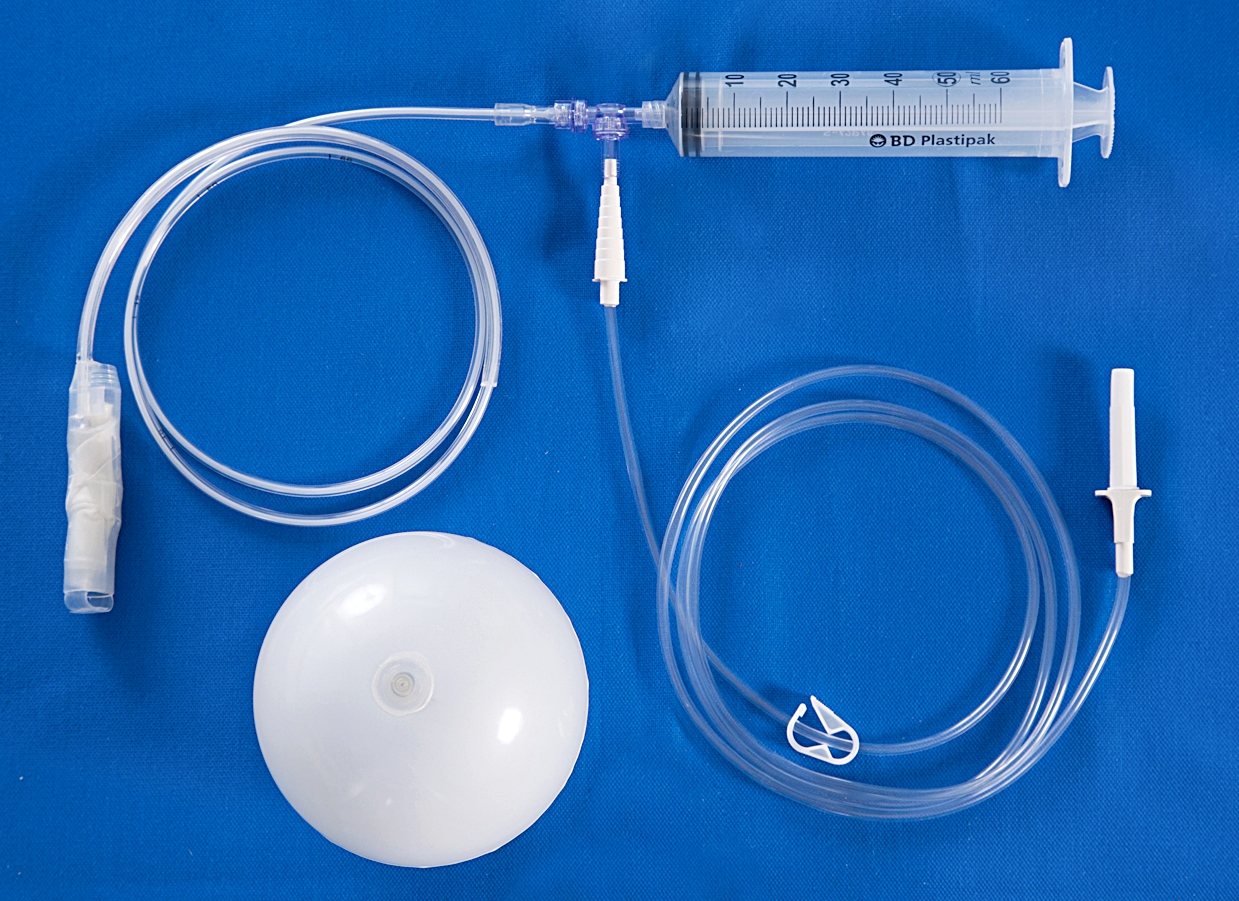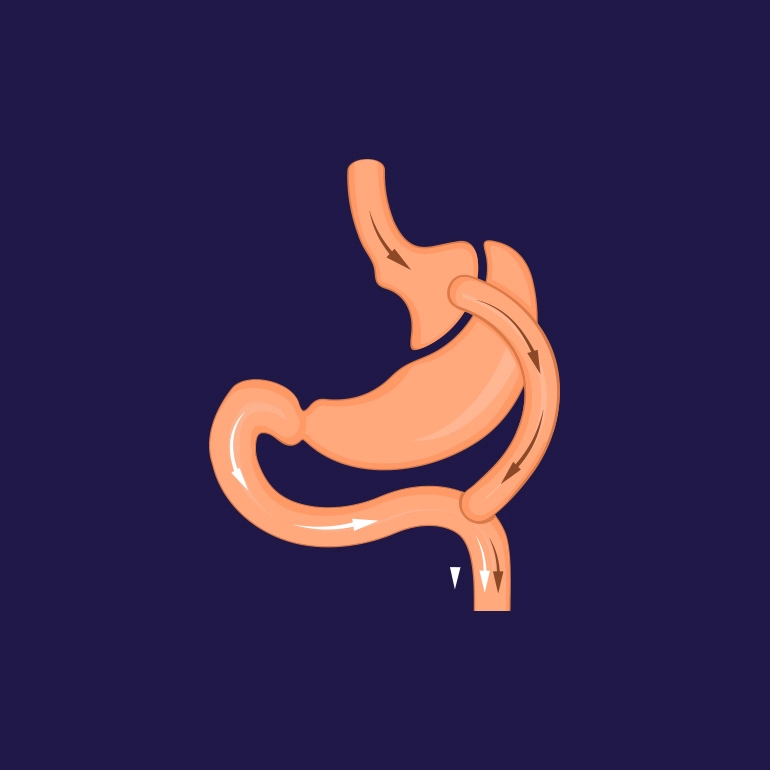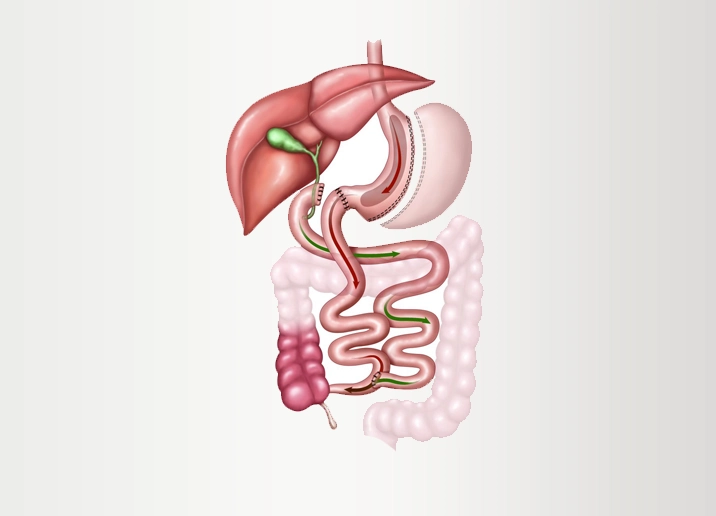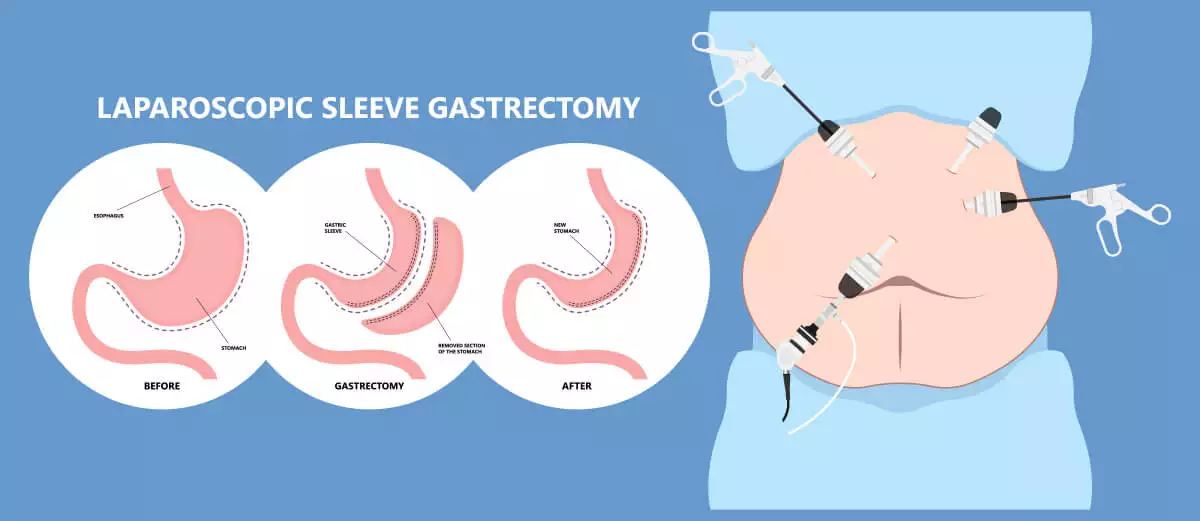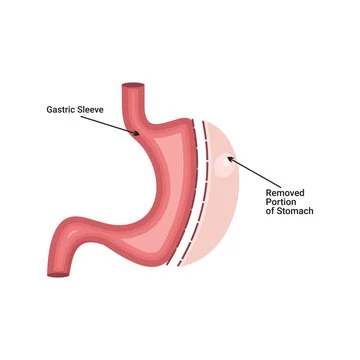10 Essential Tips for Maximizing Your Results After Weight Loss Surgery:
Undergoing weight loss surgery, whether it’s sleeve gastrectomy turkey or gastric bypass, is a significant step toward a healthier life. However, achieving lasting success requires more than just the surgery itself. Changing your lifestyle with weight loss surgery involves committing to new habits and making informed decisions about your health and well-being. In this blog post, we’ll provide you with ten essential tips for maximizing your results after weight loss surgery. We’ll cover both sleeve gastrectomy and gastric bypass, explaining how you can make the most of your surgery and ensure long-term success.
Understanding Sleeve Gastrectomy and Gastric Bypass
Before diving into the tips for success, let’s briefly review the two primary types of weight loss surgery: sleeve gastrectomy and gastric bypass.
Sleeve Gastrectomy
What is Sleeve Gastrectomy?
10 Essential Tips for Maximizing Your Results After Weight Loss Surgery:
Sleeve gastrectomy, or vertical sleeve gastrectomy (VSG), is a weight loss procedure that involves removing approximately 80% of the stomach. The remaining stomach is shaped like a sleeve or tube, which reduces its capacity and limits food intake. This procedure not only restricts the amount of food you can eat but also influences hunger hormones, leading to reduced appetite.
How Does Sleeve Gastrectomy Work?
- Preoperative Assessment: Before the surgery, patients undergo a thorough evaluation, including medical history, physical exams, and diagnostic tests to determine their suitability for the procedure.
- The Procedure: The surgery is typically performed laparoscopically, which involves several small incisions in the abdomen. Surgeons use specialized instruments and a camera to guide the operation, removing a large portion of the stomach and reshaping the remainder.
- Recovery: Recovery usually involves a hospital stay of 1-2 days, followed by a gradual transition from a liquid diet to solid foods. Patients need to follow specific dietary guidelines and attend follow-up appointments to monitor their progress.
Gastric Bypass
What is Gastric Bypass?
10 Essential Tips for Maximizing Your Results After Weight Loss Surgery:
Gastric bypass, or Roux-en-Y gastric bypass (RYGB), is a procedure that creates a small stomach pouch and reroutes the small intestine to this new pouch. This approach not only reduces the size of the stomach but also alters the digestive process, reducing calorie and nutrient absorption.
How Does Gastric Bypass Work?
- Preoperative Assessment: Patients undergo a comprehensive evaluation to ensure they are candidates for the procedure. This includes assessing their medical history, current health, and potential risks.
- The Procedure: Gastric bypass is also performed laparoscopically through small incisions. The surgeon creates a small stomach pouch and attaches it directly to the small intestine, bypassing the larger part of the stomach and the first section of the small intestine.
- Recovery: Recovery typically involves a hospital stay of 2-3 days. Patients will follow a specific diet plan and gradually reintroduce solid foods. Regular follow-up care is essential for monitoring and managing potential complications.
10 Essential Tips for Success After Weight Loss Surgery
10 Essential Tips for Maximizing Your Results After Weight Loss Surgery:
To maximize your results and maintain long-term success after weight loss surgery, consider the following ten essential tips:
1. Follow Your Surgeon’s Dietary Guidelines
Changing Your Lifestyle with Weight Loss Surgery
Adhering to the dietary guidelines provided by your surgeon or dietitian is crucial for achieving optimal results. These guidelines are designed to help you adapt to your new stomach size and prevent complications.
Key Points:
- Post-Surgery Diet: Start with a liquid diet and gradually progress to soft foods before incorporating solid foods. Follow the recommended timeline for transitioning between diet stages.
- Portion Control: Eat small, frequent meals to avoid overeating and to ensure adequate nutrient intake.
- Avoid High-Sugar and High-Fat Foods: These can lead to weight gain and other health issues. Focus on consuming lean proteins, vegetables, and whole grains.
2. Stay Hydrated
Changing Your Lifestyle with Weight Loss Surgery
Hydration is critical for overall health and aids in digestion and nutrient absorption. After surgery, you may find it challenging to drink enough fluids due to your smaller stomach size, so it’s essential to prioritize hydration.
Key Points:
- Water Intake: Aim to drink at least 64 ounces (about 2 liters) of water per day. Avoid sugary and caffeinated beverages as they can contribute to dehydration.
- Sip Throughout the Day: Take small sips of water regularly instead of drinking large amounts at once to avoid discomfort.
3. Incorporate Regular Physical Activity
Changing Your Lifestyle with Weight Loss Surgery
Exercise plays a vital role in maintaining weight loss and improving overall health. After surgery, gradually incorporating physical activity into your routine can help you achieve and sustain your weight loss goals.
Key Points:
- Start Slowly: Begin with low-impact exercises, such as walking or swimming, and gradually increase the intensity as you build stamina.
- Consistency: Aim for at least 150 minutes of moderate-intensity exercise per week, as recommended by health experts.
4. Attend Regular Follow-Up Appointments
Changing Your Lifestyle with Weight Loss Surgery
Regular follow-up appointments with your healthcare team are essential for monitoring your progress and addressing any issues that may arise. These visits provide an opportunity to track your weight loss, review nutritional intake, and assess overall health.
Key Points:
- Schedule Appointments: Keep all scheduled follow-up appointments with your surgeon, dietitian, and other healthcare providers.
- Discuss Concerns: Share any concerns or symptoms you experience to receive timely support and adjustments to your care plan.
5. Adopt a Balanced and Nutritious Diet
Changing Your Lifestyle with Weight Loss Surgery
A well-balanced diet is crucial for achieving long-term success after weight loss surgery. Focus on nutrient-dense foods that provide essential vitamins and minerals while supporting weight loss and overall health.
Key Points:
- High-Protein Foods: Incorporate lean meats, fish, eggs, and dairy products to support muscle maintenance and promote satiety.
- Fruits and Vegetables: Include a variety of colorful fruits and vegetables to ensure adequate vitamin and mineral intake.
- Whole Grains: Choose whole grains over refined grains for better fiber content and sustained energy.
6. Monitor Your Weight and Nutritional Intake
Changing Your Lifestyle with Weight Loss Surgery
Keeping track of your weight and nutritional intake can help you stay on track with your weight loss goals and make necessary adjustments to your diet and exercise routine.
Key Points:
- Track Progress: Use a food diary or a mobile app to monitor your daily food intake and exercise.
- Weigh Yourself Regularly: Regular weight checks can help you identify any trends or potential issues early on.
7. Address Emotional and Psychological Needs
Changing Your Lifestyle with Weight Loss Surgery
10 Essential Tips for Maximizing Your Results After Weight Loss Surgery
Weight loss surgery can have significant emotional and psychological impacts. It’s essential to address these aspects to ensure a successful transition and overall well-being.
Key Points:
- Seek Support: Consider joining a support group or counseling to address emotional challenges and share experiences with others who have undergone surgery.
- Manage Stress: Practice stress-reduction techniques such as meditation, deep breathing exercises, or yoga to support mental health.
8. Avoid Alcohol and Smoking
Changing Your Lifestyle with Weight Loss Surgery
Alcohol and smoking can interfere with the healing process and affect your overall health. Avoiding these substances is crucial for maximizing the benefits of weight loss surgery.
Key Points:
- Alcohol: Limit or avoid alcohol consumption, as it can contribute to weight gain and affect nutrient absorption.
- Smoking: If you smoke, seek help to quit, as smoking can lead to complications and hinder recovery.
9. Educate Yourself About Potential Complications
Changing Your Lifestyle with Weight Loss Surgery
10 Essential Tips for Maximizing Your Results After Weight Loss Surgery:
Being aware of potential complications and understanding the signs of common issues can help you seek prompt medical attention and avoid serious health problems.
Key Points:
- Recognize Symptoms: Learn about common post-surgery complications, such as infection, dehydration, and nutritional deficiencies.
- Seek Help: Contact your healthcare provider if you experience any unusual symptoms or concerns.
10. Stay Motivated and Set Realistic Goals
Changing Your Lifestyle with Weight Loss Surgery
10 Essential Tips for Maximizing Your Results After Weight Loss Surgery:
Staying motivated and setting realistic goals can help you maintain focus and achieve long-term success after weight loss surgery. Celebrate your achievements and stay committed to your health journey.
Key Points:
- Set Goals: Establish short-term and long-term goals for weight loss, physical activity, and overall health.
- Celebrate Success: Recognize and celebrate your progress, no matter how small, to stay motivated and encouraged.
Conclusion
10 Essential Tips for Maximizing Your Results After Weight Loss Surgery turkey: Maximizing your results after weight loss surgery involves more than just the surgical procedure itself. Changing your lifestyle with weight loss surgery requires dedication to new habits and ongoing commitment to your health. By following these ten essential tips, including adhering to dietary guidelines, staying hydrated, incorporating physical activity, and addressing emotional needs, you can achieve and maintain long-term success.
Whether you’ve undergone sleeve gastrectomy or gastric bypass, the journey to a healthier you involves continuous effort and support. Remember to work closely with your healthcare team, stay informed, and embrace the lifestyle changes necessary for achieving your weight loss and health goals.


